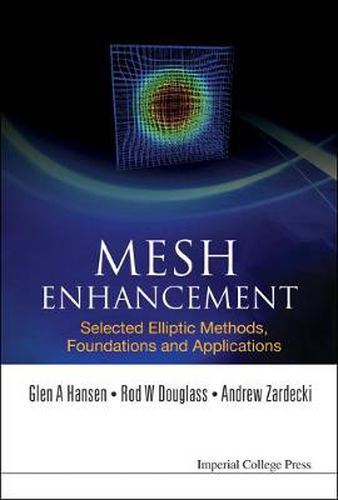Readings Newsletter
Become a Readings Member to make your shopping experience even easier.
Sign in or sign up for free!
You’re not far away from qualifying for FREE standard shipping within Australia
You’ve qualified for FREE standard shipping within Australia
The cart is loading…






This book focuses on mesh (grid) enhancement techniques - specifically, the use of selected elliptic methods for both structured and unstructured meshes associated with computational physics applications. Mesh enhancement is the process in which an existing mesh is modified to better meet the requirements of the physics application. To provide the reader with sufficient background information, seven of the nine chapters contain a summary of the numerical simulation process, basic background on mesh terminology and generation approaches, computational geometry, discretization of differential equations, methods of solving linear and nonlinear algebraic systems, geometry of surfaces in Euclidean space, and general elliptic methods for mesh enhancement. Furthermore, these chapters use the concept of harmonic coordinates to develop a unifying framework, the Laplace-Beltrami system, which is the governing principle of the book. The final two chapters apply this scheme, along with other selected elliptic methods, to various structured and unstructured example problems.
$9.00 standard shipping within Australia
FREE standard shipping within Australia for orders over $100.00
Express & International shipping calculated at checkout
This book focuses on mesh (grid) enhancement techniques - specifically, the use of selected elliptic methods for both structured and unstructured meshes associated with computational physics applications. Mesh enhancement is the process in which an existing mesh is modified to better meet the requirements of the physics application. To provide the reader with sufficient background information, seven of the nine chapters contain a summary of the numerical simulation process, basic background on mesh terminology and generation approaches, computational geometry, discretization of differential equations, methods of solving linear and nonlinear algebraic systems, geometry of surfaces in Euclidean space, and general elliptic methods for mesh enhancement. Furthermore, these chapters use the concept of harmonic coordinates to develop a unifying framework, the Laplace-Beltrami system, which is the governing principle of the book. The final two chapters apply this scheme, along with other selected elliptic methods, to various structured and unstructured example problems.